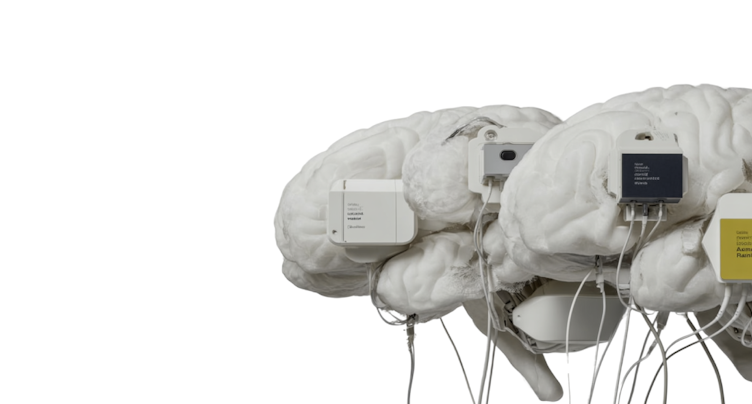share this post on


26 September, 2024
An accurate diagnosis and a well-crafted treatment plan is insufficient in itself. The road to recovery and treatment success requires active participation from patients, in other words, patient adherence. Healthcare providers are increasingly recognizing that integrating advanced technologies, such as AI, with behavioral science can significantly enhance adherence, empowering patients to follow their treatment plans effectively, whether through medication or the use of medical devices.
What is patient adherence?
Patient adherence is the willingness and ability of patients to modify their behavior and follow through with the recommended treatments. In the words of the WHO, it’s “the extent to which a person’s behavior – taking medication, following a diet, and/or executing lifestyle changes, corresponds with agreed recommendations from a healthcare provider.”
Patient adherence is a considerably broad concept but essentially it encompasses all actions a patient must take to ensure the success of their treatment plan, from taking medication to broader lifestyle changes.
Most importantly, at its core, patient adherence is a behavioral response — something that links understanding what is beneficial for our well-being and actually adopting those practices into our lives.
|
Boost Treatment Adherence With Behavioural Science-Powered Digital Tools Learn about the crucial factors in patient adherence and the successful usage of supporting digital solutions powered by behavioral science, with successful case studies. |
The 4 main challenges of patient adherence
When it comes to sticking with health regimens or incorporating the usage of a medical device into their daily routine, many patients are struggling due to common motivational and behavioral challenges.
Adjusting to habit & lifestyle changes
Adhering to a medical treatment often necessitates substantial changes in one’s lifestyle and habits. Incorporating new behaviors — such as measuring blood pressure or taking medications regularly — requires patients to alter their daily routines significantly.
This adjustment can be challenging as it disrupts established habits and requires the formation of new ones.
A need for motivation & persistence
The emotional and psychological impact of being diagnosed with a disease can also hinder a patient’s ability to adhere to treatment. Feelings of denial, fear, and anxiety can lead to neglecting treatment.
Additionally, following health regimens can often be a boring, repetitive task that becomes uninteresting if there are no immediate rewards to fuel the patient’s motivation.
Dealing with new, complex routines
Following treatment plans for chronic conditions requires dealing with complex routines. This includes taking medications on time, following special diets, exercising regularly, and checking health stats often.
For example, a diabetic person needs to balance insulin, eat right, stay active, and monitor blood sugar regularly, as well as keep track of all these daily tasks.
Lack of feedback
Often, health improvements are gradual and not instantly visible. Many diseases also lack immediate symptoms, leaving patients unaware of the consequences of neglecting their treatment.
The absence of immediate rewards or clear signs of progress can make it difficult for patients to see the value in following complex treatments or making lifestyle changes.
How can digital aids support patient adherence?
To comprehend patient behavior and assist them in taking the correct actions, the outcomes can be improved by digital aids that address real patient pain points and integrate seamlessly into users’ lives.
First of all, the foundation of adherence lies in the trust that healthcare practitioners establish in their expertise and treatment plans during patient interactions. No digital tool can truly replace this. However, doctors have limited time for each patient, and cannot provide continuous support at home, and at the same time, technological solutions aren’t sufficient by themselves to guide patients through successful behavior change.
Merely having an app on a patient's smartphone that lists which medications to take each day is not helpful unless the patient regularly uses the app and takes the medication as prescribed. Likewise, owning a device that tracks blood glucose levels is ineffective without the patient using it every day and acting on its recommendations.
To significantly influence patient behavior, we at Supercharge recommend integrating technology solutions — such as sensory monitoring and AI insights — with behavioral science strategies, including Behavior Change Techniques (BCTs), habit loops, and reward systems.
This integrated strategy, at the intersection of behavioral science and technology, known as behavioral design, is key to developing digital patient experiences that drive successful adoption and ensure treatment adherence — and one of its most promising fields is the application of generative AI in healthcare.
|
Behavioral design is a growing field that merges the latest insights and frameworks from behavioral science research with practical product design methodologies. It strives to develop tools that empower individuals to change their behaviors to improve their health and tackle the behavioral challenges of their health management journey. |
5 solutions to promote patient adherence with the right digital toolkit
Technology creates numerous possibilities for using behavioral science to improve patient adherence and promote healthier behaviors, in fact, there are many real-life applications of adherence-boosting health tech already. Below, we outline a few common solutions on how to integrate technology with behavioral design principles.
Use tech to simplify patient actions
Identify possible mental or physical barriers to adherence, and develop tech solutions that radically simplify patient actions via automation. For example, an app could automatically send a prescription refill request to the doctor when the current supply is nearing depletion, and then forward the prescription to the patient’s preferred pharmacy to organize delivery.
Offer monitoring & feedback loops
Gather data through an app, integration with wearable sensors, or other passive monitoring technology to track health stats and related patient behavior. Provide feedback on their progress to reinforce positive actions.
Utilise AI for personalized insights & recommendations
Leverage AI to analyze data collected through device usage or other monitoring technologies. Turn this data into tailored recommendations that guide patients to take specific steps and adjust their routines for improved adherence. Utilise AI for personalized motivational messaging and timely, context-aware nudges that may prompt the patient.
|
Revolutionizing home health testing Supercharge developed a digital fueled service for Direct Diagnostics to increase access to blood testing and simultaneously, empower people to take control of their health. Direct Diagnostics creates an environment where users not only feel supported, informed, capable, and confident about performing a test at home. Additionally, they are provided with clear, actionable insights, and personalised nudges based on their individual blood markers, ensuring they receive the necessary guidance to take the next steps, from making an appointment with a healthcare institution or tips to maintaining their excellent results. Learn more about this project of Supercharge and Direct Diagnostics. |
Build dynamic digital motivator systems
Make use of AI and machine learning to build dynamic motivator systems that adapt to user behavior (e.g., medication adherence or app engagement). By analyzing user data in real time, such a system could provide personalized rewards (e.g., virtual badges, points, or discounts) to encourage consistent positive actions.
|
Habit-building coach for medical adherence Habita, a medication companion app developed by Supercharge for Egis Pharmaceuticals, aims to boost adherence to hypertension treatment plans by leveraging key behavioral design techniques. One of them is providing instant rewards after users take the right action — a feature that makes them feel positive about adhering to their therapy. Learn more about Supercharge’s work behind the Habita app. |
Deliver adequate triggers with digital tools
Leverage technology to deploy digital triggers that are both timely and pertinent. Use data to ensure that these prompts are delivered at the ideal moment and location, and are tailored to fit the user’s context. If a patient typically takes meds after arriving home in the evening, the system can send reminders precisely when the user is detected to be at home.
Increasing patient adherence with health tech
Adhering to medication, adjusting diets, or using medical devices can be challenging for patients, and their long-term health heavily relies on their willingness and ability to form and maintain new habits.
Healthcare providers can boost patient adherence by integrating digital technologies into treatment plans that use behavioral design techniques, making it easier and more rewarding for patients to adopt new routines.
Ultimately, healthcare professionals aim to empower patients to feel confident and motivated in managing their health. At Supercharge, we support this goal by designing healthcare apps that are laser-focused on enhancing patient outcomes and boosting practitioner efficiency.
Let's collaborate on your cutting-edge digital product!
The form is loading...



